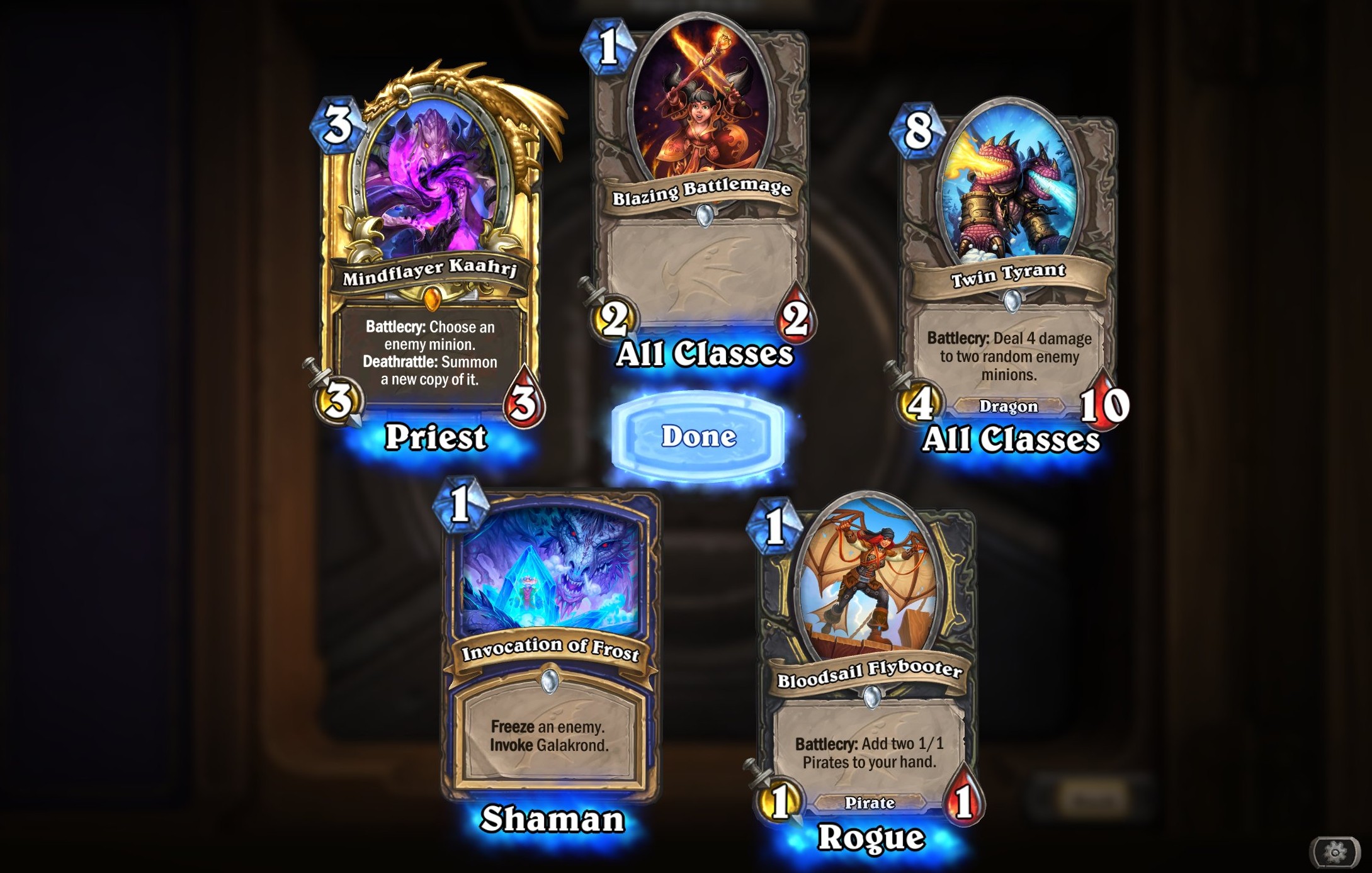Hearthstone packs are getting total 'duplicate protection', but how much will that actually save you?
Turns out it's quite a bit, as Blizzard aims for a 'cheaper and better experience.'

With the launch of Ashes of Outland on 7 April, Blizzard is simultaneously making a major change to the way Hearthstone card packs work: duplicate protection, which previously only applied to legendary cards, is being expanded to include epic, rare, and even common cards. That means you will not open a third copy of any card until you have first collected two copies of every card of that rarity from the expansion. Note that this change will affect the new Ashes of Outland card packs and packs from all previous expansions, including any you're holding unopened.
Hearthstone Game Director Ben Lee explains the rationale: "We have a lot of people playing the game, so statistical anomalies can actually be quite large. There's a video that some players will be familiar with about [opening multiple copies of] Bolf Ramshield, and that was a bad player experience. I can't remember the exact number, but it's like five or something. That's not good, and while it makes a funny YouTube video, the player is just very unhappy. We definitely have that problem with epics, less so with rares and commons—but if we're making this change for epics, we may as well just go all the way."
Bringing duplicate protection to commons won't make a huge difference for hardcore players, who will open enough packs to receive multiple copies of all commons anyway. But it's a major change for casual players that should see the overall cost of playing come down quite a bit. Under the old system, even opening 100 card packs did not guarantee a full set of commons, but with duplicate protection you can expect to have all the common cards from an expansion after opening less than 30 packs.
The difference it makes to collecting rare cards is equally impressive: you will acquire all the rares from an expansion in under 70 packs. That means that if you do your daily gold quests more often than not, you can have all the common and rare cards from a new expansion at launch as a free-to-play player with your saved gold. That's a major improvement from the current system in which even opening 200 packs wouldn't guarantee a full set of rares.
It gets better: if you disenchant a card, you will not open a copy of the same card again until you've collected all the other cards of that rarity. Got an epic you don't expect to use? Disenchant it and you won't see it again for a long time.
The cost for completing a whole expansion is coming down by around 10%, and the experience of collecting a set should feel much more consistent.
Improving the player experience is a major reason for the change according to Lee: "We want it to be cheaper and just a better experience as well. If you buy the $50 or $80 pre-purchase [bundle], when you open those you want them to have unique options rather than duplicates. That's what we think is the right thing for players."
Opening new packs is about to become more fun. Whether it's your first or 50th pack, you'll always find something new. After collecting all the commons and rares, dupes of those rarities will start to appear, but there's still an epic to look forward to in every fifth pack or so. By my maths it should take around 260 packs to have a full set of epics.
Keep up to date with the most important stories and the best deals, as picked by the PC Gamer team.
Overall, the cost for completing a whole expansion is coming down by around 10%. By my estimation—assuming you don't use any in-game gold—it will cost around $270 in the new system. That's both the pre-order bundles, plus another two 60-pack purchases—still very expensive, but under the old rules you would have needed to drop another $20-$40 to get to a complete set. Also bear in mind that you don't need every card from any set, as our tips for keeping the cost of Hearthstone down explain.
After the launch of Ashes of Outland, the experience of collecting an entire set should feel much more consistent. Given that you can reliably expect to open all the commons and rares relatively quickly, it leaves you free to focus your crafting resources on the epics and legendaries you need for specific decks.
"Generally, we don't particularly want players to disenchant their cards," says Lee. "That's a bit of a new mentality for us, especially when you think about things like achievements in the future, and game modes potentially linking to older parts of your collection. If you're destroying your cards, you're kind of harming yourself [in relation to] future things that we're planning. So, we want people to open their cards, feel good about them, and keep them."

